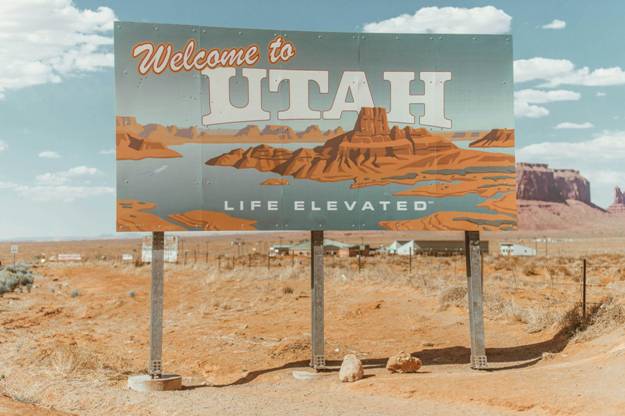Gambling laws exist so that players around the world can enjoy casino games and bask in that experience in a safe and ethical way. There are probably millions of players scattered across the United States alone, and some of these states have much more stringent laws than others. Many state governments have their reasons for why they're so hard on gambling, such as local values, religious influence, or simply government policy.
Utah, in the southwest, is known for having some of the toughest gambling laws in the country. The state bans almost all forms of betting, including casinos and online gambling. Still, people keep talking about it and even looking for new platforms with new games. Because of this, a list of new UT casinos sometimes appears online, showing that many locals are still interested in casino gaming. This kind of interest shows there is a clear gap between Utah’s strict rules and what its gaming community actually wants.
Historical Foundations of Utah's Anti-Gambling Stance
Utah and its gambling prohibitions go way back, as far back as the mid-19th century. At the time, the early settlers and lawmakers were very big on morals and strong social controls. And many of these biases seeped into the legal framework of the state so much that total bans became a normality, even century-old policies against gambling persisted before they were slowly relaxed.
Utah is a state that is popular for being heavily conservative, so it's no wonder that it completely prohibits all forms of gambling. Even raffles can't happen in Utah, and this makes it one of the few states in the US that is vastly different in its view of gambling compared to other states. This is increasingly telling on its economy.
Other neighboring states seem to be enjoying the benefits of Utah's anti-gambling laws. States like Nevada and Pennsylvania are very much open to the fun that comes with casino games, and many know that the more the influx of casinos and their players, the more the money. The total revenue generated in the US from January to August this year is about $51 billion. So it's easy to tell why the legislation in other states is becoming much more favorable.
Religious Influence
A huge chunk of Utah's population is made up of practicing Christians. Many of the believing population often view gambling as immoral, a breeding ground for irresponsible gaming, and that it erodes family stability. A lot of these views have been reflected in the laws within the state of Utah. This is why a constitutional ban was put in place that explicitly prohibits all kinds of gambling, even sports betting and raffles.
Many believe the legalization of sports betting in Utah is never going to happen. And this is because virtually all the churches within the state of Utah are opposed to gambling and even government-sponsored lotteries. The followers in these churches strongly believe that it has led members away from their religious teachings, undermining the values of work and honest effort.
The vast majority of the population of Utah holds this kind of view, which explains why heavy restrictions on gambling exist. It is so deeply rooted that it becomes unlikely to see an end to the complete removal of these century-old anti-gambling restrictions any time soon.
Entertainment Vs Revenue
Gambling, for players, should be treated as entertainment, not a source of income. Some players do it the other way around, and that is where Utah’s perspectives stem from. Understandably, it is about responsible gaming.
But for the government, gambling is a good source of income. There are substantial economic benefits and tax revenues that are drawn from states where gambling is allowed.
In 2024, Nevada generated $15.61 billion in gaming revenue. Legalized gambling improves local and small businesses within the community, drawing tourists from all over, especially with the existence of physical casinos.
The push for the easing of these gambling laws is based on the principle of freedom, where people can choose the experience of safe casino gaming. However, many still believe Utah is highly unlikely to change its position on gambling.
Preemptive Measures Against Federal and Digital Expansion
The state of Utah can afford to be very strict with its gambling laws because it is no longer subject to federal gambling laws. About thirteen years ago, back in 2012, the state passed a house bill that explicitly stated that they want nothing to do with any laws relating to the gambling industry in the US.
It was seen as the legislation that reinforced Utah's position as one of only two states that desire to maintain a total ban on all forms of gambling. From lotteries to casinos, much of its opposition is driven by cultural and religious values.
Utah's steadfast commitment to its anti-gambling ethos is forged in historical, religious, and cultural tenets, and it continues to define it as an outlier in a nation increasingly embracing regulated gaming. While residents may turn to offshore platforms or neighboring states for entertainment, the state's priorities remain fixed on safeguarding societal values over potential economic gains.
In the end, Utah's laws serve as a reminder that not every jurisdiction measures progress by the roll of the dice.

